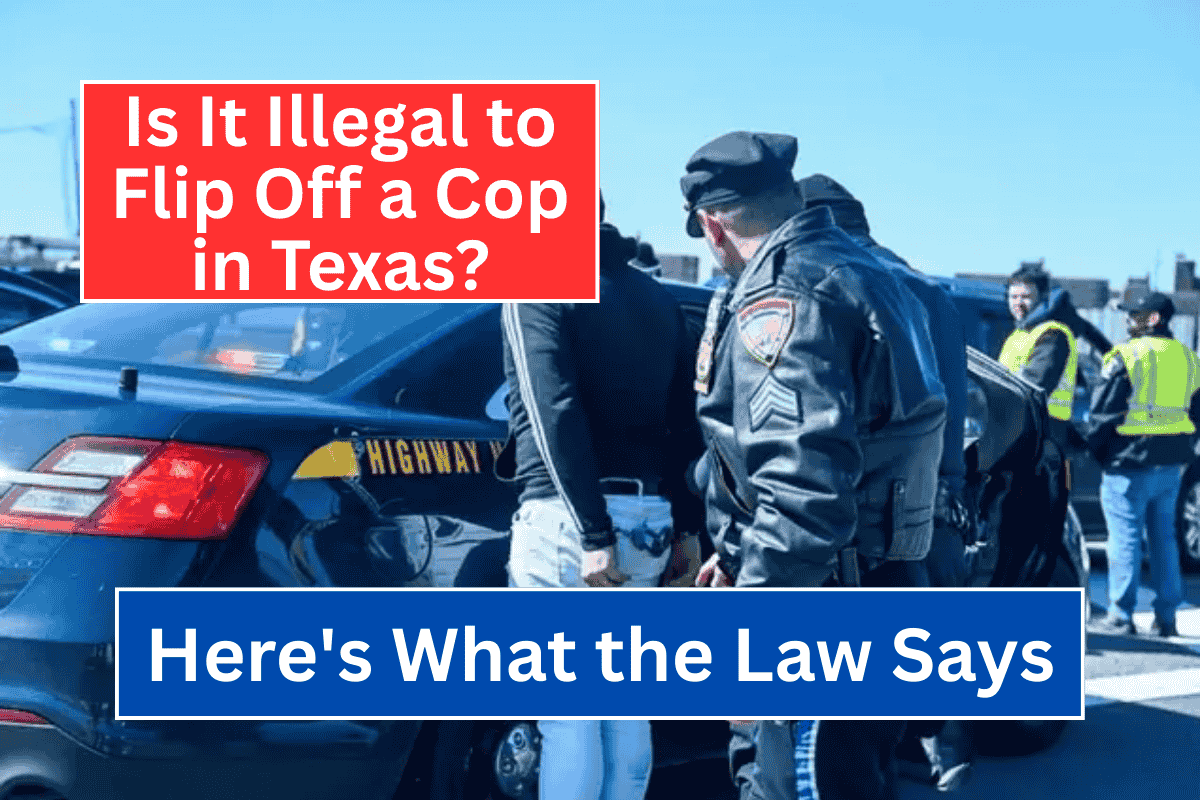Flipping off a police officer—or anyone else, for that matter—may seem like an act of disrespect, but is it illegal in Texas? The simple answer is no, flipping off a cop is generally not illegal.
However, it’s a bit more complex when we dive into what constitutes disorderly conduct under Texas law, especially in relation to the First Amendment and the freedom of speech.
What is Disorderly Conduct in Texas?
According to Texas Penal Code § 42.01, disorderly conduct is defined broadly, covering a range of public behaviors. Some actions, including offensive gestures, can be classified as disorderly conduct if they tend to incite an immediate breach of the peace.
The law specifically includes behaviors like:
Abusive Language/Gestures: Using profane, vulgar, or indecent language or making offensive gestures in a public place, where such language or gestures can lead to violence or disturbance.
Threatening Behavior: Abusing or threatening a person in an obviously offensive manner in public.
Unreasonable Noise: Making excessive noise in public spaces, especially near a private residence.
Fighting: Engaging in physical altercations in a public place.
Flipping Off a Cop and the First Amendment
One common question is whether flipping off a police officer constitutes disorderly conduct. Texas Penal Code § 42.01(a)(2) prohibits “offensive gestures or displays” that tend to “incite an immediate breach of the peace.” But does this apply to flipping off a cop?
In most cases, no. Courts have found that expressive conduct, including rude or offensive gestures like flipping the bird, is protected speech under the First Amendment unless it rises to the level of “fighting words.”
What Are “Fighting Words”?
The U.S. Supreme Court has defined fighting words as those that “by their very utterance inflict injury or tend to incite an immediate breach of the peace.” Simply put, fighting words are those epithets or expressions that are likely to provoke a violent reaction from the average person.
For a gesture like flipping someone off to be considered disorderly conduct, it must meet the legal standard for fighting words, meaning it would have to provoke an immediate violent response. Since flipping off a police officer generally does not incite violence, it usually does not meet this threshold.
Case Example: Brown v. Wilson (2015)
A significant case in Georgetown, Texas, involved a man who was cited for disorderly conduct after flipping off a police officer while driving. The court ruled in favor of the man, stating that his gesture did not constitute fighting words. The court emphasized:
First Amendment Protection: The gesture was a form of free expression and not likely to provoke immediate violence.
Police Restraint: Police officers are expected to maintain a higher level of restraint than the average person and are less likely to react violently to offensive gestures.
No Threat of Violence: The court found no indication that the gesture would provoke a breach of the peace.
This case strongly supports the idea that flipping off a cop is protected as free speech, unless there is an actual threat of violence or escalation.
Evaluating Disorderly Conduct Charges
While flipping off a cop is generally protected speech, it’s always important to consider the context. If the gesture is part of a larger confrontation or accompanied by verbal threats or actions that lead to actual violence, it could potentially escalate into something more serious.
However, just the simple act of making an offensive gesture typically doesn’t meet the legal standard for disorderly conduct in Texas.
Flipping Off a Cop in Texas Is Likely Not Illegal
In Texas, flipping off a police officer, while rude, is generally not illegal under the law. Courts have consistently upheld that offensive gestures are protected under the First Amendment as long as they don’t incite violence or escalate into “fighting words.”
That said, while the gesture is legal, it could still provoke a negative response from law enforcement, and police might look for other reasons to issue a citation or take action. It’s always advisable to remain calm and respectful during interactions with law enforcement to avoid unnecessary complications.












